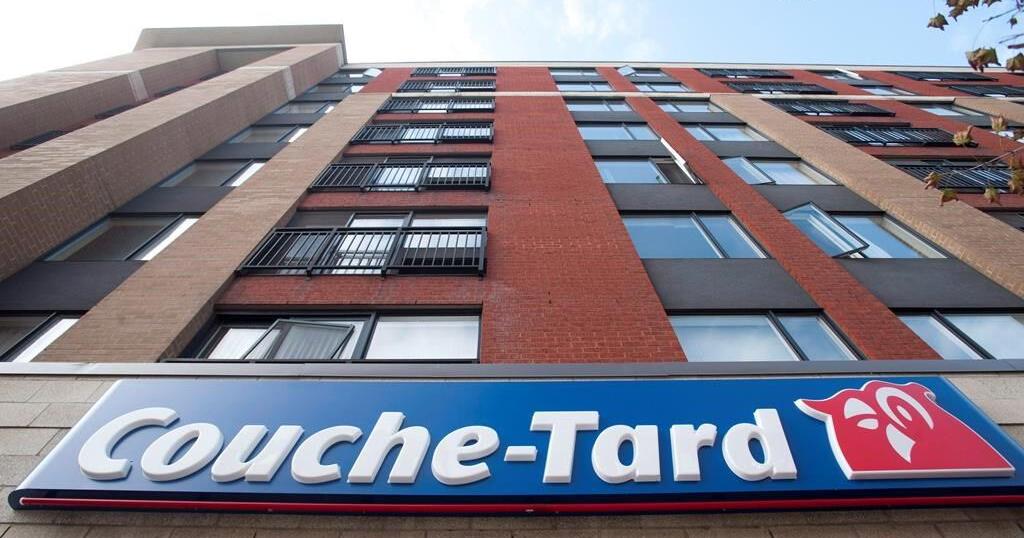Alimentation Couche-Tard Inc. could be on the verge of dominating the world’s convenience store market after it offered to buy one of the sector’s biggest players.
Japan’s Seven & i Holdings Co. Ltd., which owns 7-Eleven, said it received a non-binding offer from Laval, Que.-based Couche-Tard to acquire all outstanding shares.
Seven & i owns not just the popular 7-Eleven convenience store chain in the U.S., Japan and elsewhere, but also a number of other businesses including supermarkets, food producers, household goods retailers, financial services companies and even has a stake in Tower Records Japan.
Couche-Tard did not disclose terms of the proposal presented to Seven & i but described the offer as “friendly, non-binding” and said it is focused on “reaching a mutually agreeable transaction that benefits both companies’ customers, employees, franchisees and shareholders.”
Seven & i has convened a special committee of its board of directors to review the offer, it said in a press release.
“This potential takeover bid is a huge deal,” said Neil Saunders, managing director of GlobalData, in an email.
Couche-Tard’s empire already covers 31 countries and more than 16,700 stores, but Seven & i’s website says it operates about 85,800 stores, has about 157,177 employees and counts 63.6 million customers visits per day.
In the U.S. alone, Saunders said 7-Eleven’s 14.5 per cent market share makes it the biggest operator in the country’s convenience retail store space, while Couche-Tard’s banners hold about 4.6 per cent.
“Combining the two would produce an entity that controls almost a fifth of the market,” he said.
Though Couche-Tard publicized the offer Monday, it cautioned that there could be no certainty at this stage that any agreement or transaction will be reached with Seven & i, which said in its own release that it has formed a special committee to review the proposal.
Couche-Tard did not immediately respond to questions about what the company was hoping to achieve with its offer and has said it does not anticipate making further public statements about the pitch until any agreement has been solidified.
And even if an agreement is reached, a deal isn’t certain because of the regulatory approvals the parties will need to snag, Saunders pointed out.
While he sees few competition concerns because convenience stores are part of a much wider food and groceries market, he said “the levels of concentration will almost certainly attract Federal Trade Commission scrutiny which, given the current negative sentiment around consolidation and competition in the food and essentials space, will not make this deal an easy one.”
There’s also “complexity” with buying a Japanese firm, he said.
“Although there have been reforms in the country to make takeovers easier, most Japanese firms are very cautious and resistance to change. That includes Seven & i, whose complex operating model also hampers a deal,” he said.
“Unless the Alimentation Couche-Tard has a substantial premium attached, it is likely to be dismissed.”
Couche-Tard has faced such concerns before. Three years ago, when it was trying to buy French grocer Carrefour SA, Couche-Tard abandoned takeover talks when French finance minister Bruno Le Maire said he wouldn’t let a potential $25-billion deal proceed because it would put food security at stake.
The two companies agreed to instead consider future operational partnerships.
The Seven & i deal would be even bigger, turning Couche-Tard into a “dominant force” and “improving its economies of scale.”
“This would be helpful at a time when margins and growth are under pressure, Saunders said.
“However, as usual, whether the benefits from a tie up outweigh the use cost of purchasing Seven & i remains to be seen.”
While the enormity of Couche-Tard’s takeover plans may have surprised some, the company’s president and chief executive Brian Hannasch told analysts on quarterly earnings call almost two months ago that he had several potential deals on his radar.
He said the potential deals spanned both Europe and North America and ranged in size from “nice tuck-ins” to acquisitions almost as large as his company’s recent purchase of European retail assets from French oil giant TotalEnergies SE for 3.1 billion euros.
“We’ll remain disciplined. We commit to that,” Hannasch said. “But we’d like to think we can land a few opportunities over the coming quarters.”
In a separate statement Monday, Couche-Tard said it has signed a deal to buy GetGo Café +Markets from supermarket retailer Giant Eagle Inc. Terms of the deal were not disclosed.
GetGo has about 3,500 employees and operates about 270 convenience retail and gas stations in Pennsylvania, Ohio, West Virginia, Maryland and Indiana.
This report by The Canadian Press was first published Aug. 19, 2024.
Companies in this story: (TSX:ATD)




















